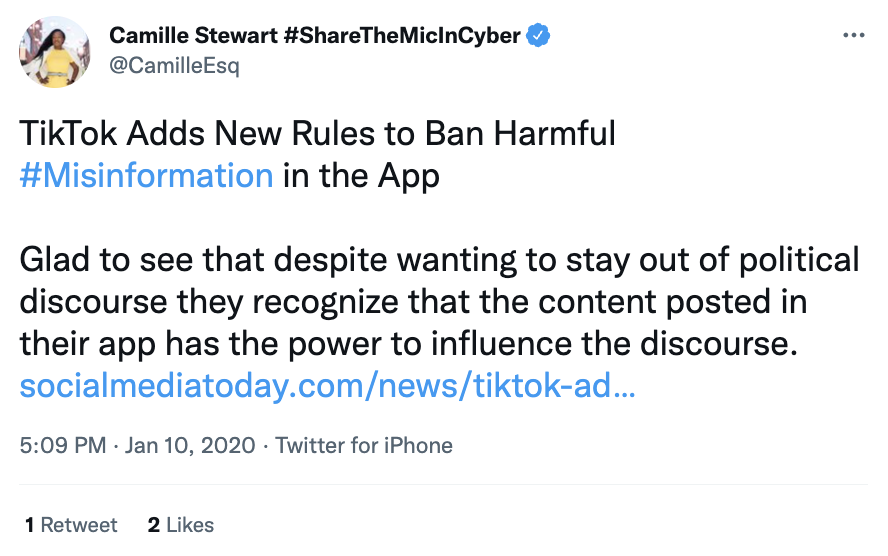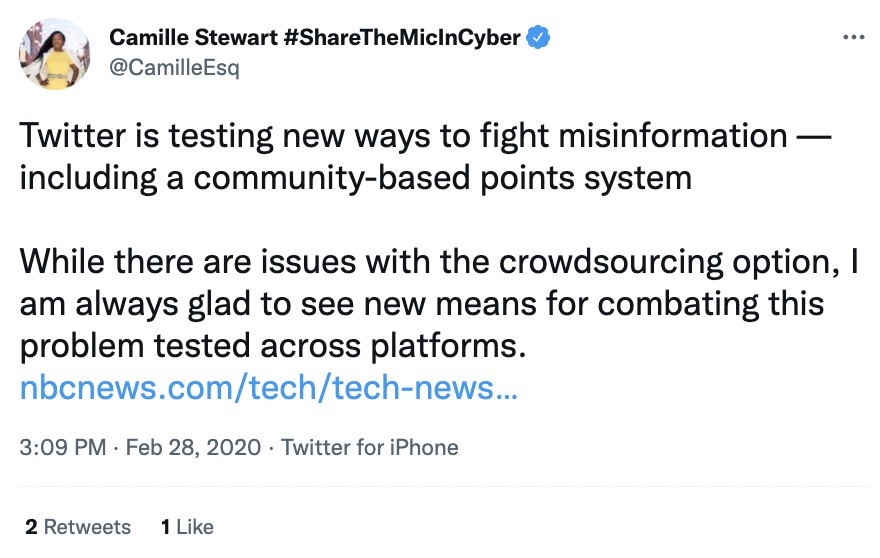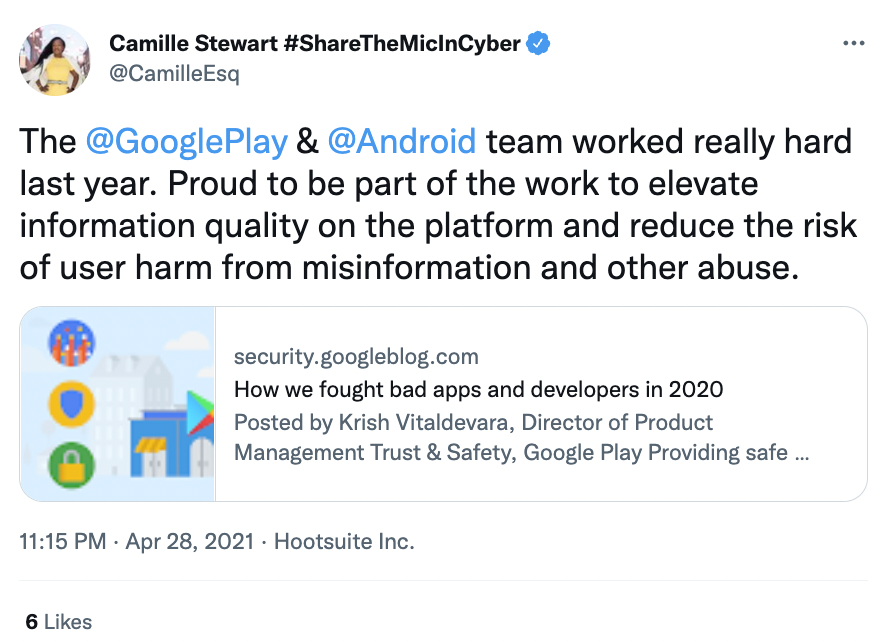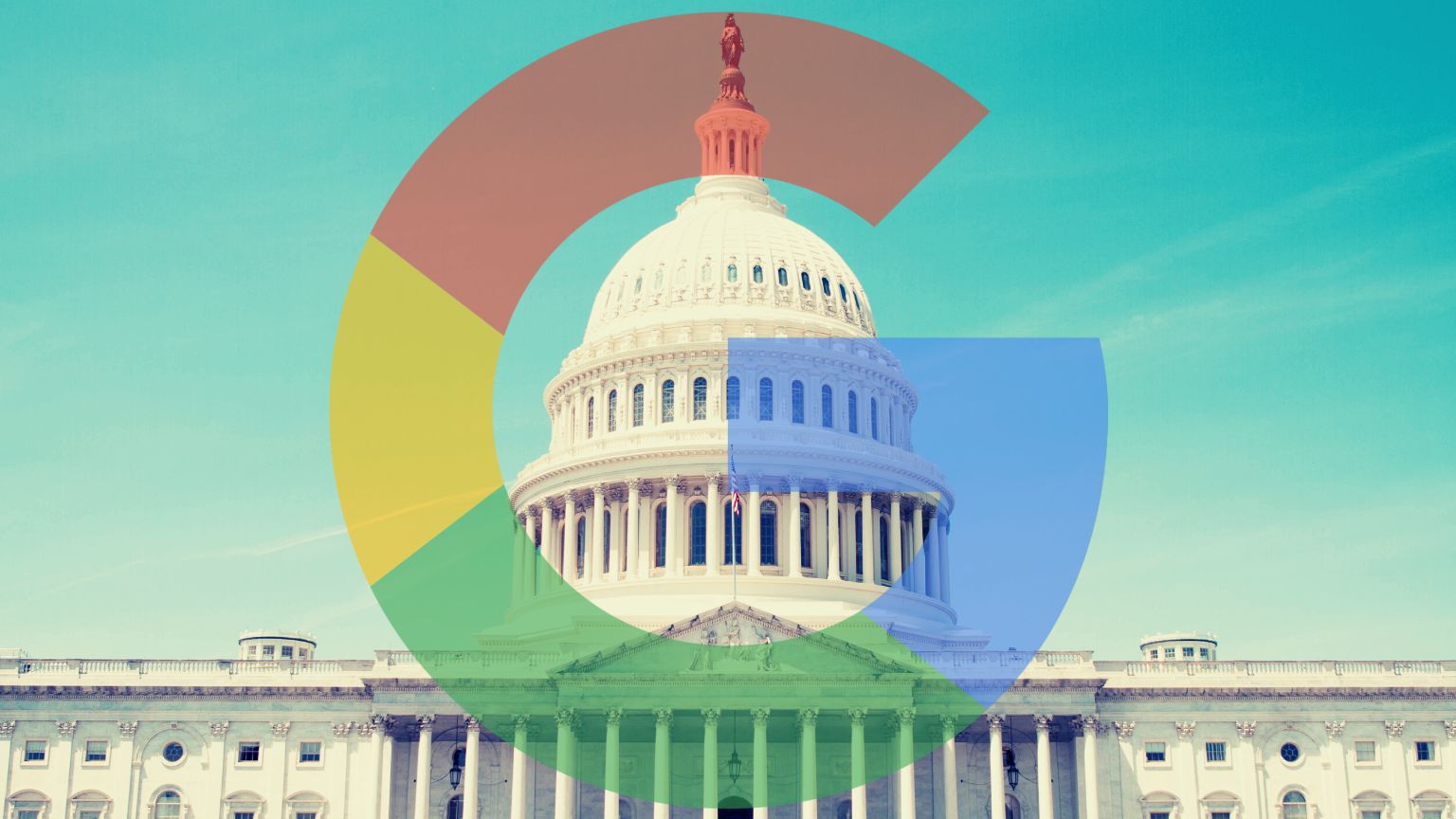The long-since established “revolving door” scheme between the White House and Big Tech has continued with the appointment of former Google executive Camille Stewart Gloster as Deputy National Cyber Director with the Office of the National Cyber Director.
And before she joined Google, Gloster was already once working for the government – as a policy adviser in the Department of Homeland Security during the Obama administration.
The White House Office of the National Cyber Director has been operating for a year now, with Gloster slated to deal with workforce programs and security issues pertaining to supply chain; reports say that she will be joining other deputies in the Office who come from Microsoft, the CIA, and the National Security Council.
The practice of giving government jobs to former Big Tech execs, and of Big Tech employing former government officials is frowned upon as one way to establish an infrastructure of what critics fear can – and does – easily turn into “systemic collusion.”
Gloster, meanwhile, is known for her focus at Google, combating what the tech behemoth defines as misinformation on the Android platform – specifically, to “reduce the risk of user harm from misinformation.”
“She joins ONCD from Google, where she most recently served as Global Head of Product Security Strategy, and before that as Head of Security Policy and Election Integrity for Google Play and Android,” the announcement states.
Gloster has praised US and Chinese social media giants, favoring Twitter’s testing of “a community-based points system” to combat “misinformation” – a social credit style fact-checking system for politicians and public figures.



She also welcomed TikTok announcing new rules banning “harmful misinformation,” noting that it was good the super-popular video platform was aware that content posted there can influence political discourse.
Another way to influence political discourse, of course, is to arbitrarily declare content as misinformation and ban or downrank it, a method Big Tech has been employing in earnest over the past years.













